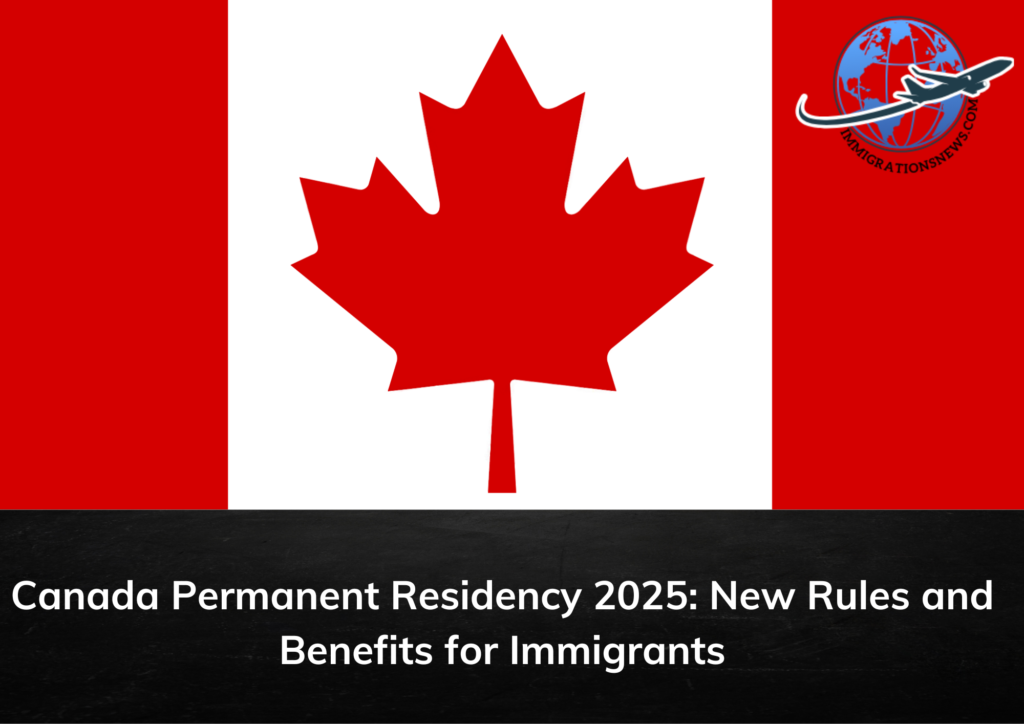Canada has recently made significant changes to its immigration rules, tightening regulations for temporary residents, including Indian students and tourists. The new immigration regulations that came into effect on January 31 now allow border officials to revoke various temporary resident documents. These include electronic travel authorizations (eTAs), temporary resident visas (TRVs), work permits, and study permits under specific conditions. This policy shift is expected to affect thousands of foreign nationals, with a notable impact on the Indian community.
In this article, we will explore the new Canada immigration rules for Indians, how they may affect students and visitors, and what steps you should take to ensure your status remains intact.
What Are the New Canada Immigration Rules?
Canada’s immigration laws have long been viewed as some of the most welcoming in the world, especially for international students. However, with recent amendments to the Immigration and Refugee Protection Regulations, temporary resident documents can now be revoked by immigration officials. These changes are designed to ensure the integrity of Canada’s immigration system and to bolster border security.
Key Reasons for Document Cancellation:
- Ineligibility: If an individual’s status changes (e.g., false information, criminal record, or death), their documents can be canceled.
- Suspicion of Non-Departure: If immigration officials doubt that the individual will leave Canada after the expiration of their stay.
- Lost or Stolen Documents: Temporary resident visas or permits can be canceled if they are lost, stolen, or issued due to administrative errors.
- Permanent Residency Change: If a temporary resident becomes a permanent resident, their temporary documents are no longer valid.
Expanded Authority to Cancel Temporary Resident Visas
Immigration officials now have expanded authority to cancel a variety of temporary permits. This includes:
- Work Permits
- Study Permits
- Temporary Resident Visas (TRVs)
- Electronic Travel Authorizations (eTAs)
These changes mean that Indian visitors and students who are in Canada on temporary permits could face uncertainty and risk having their documents revoked if they don’t meet the conditions specified under the new rules.
Impact on Indian Students in Canada
Canada remains one of the most popular destinations for Indian students, with over 427,000 Indian students currently enrolled in Canadian institutions. However, the tightened immigration rules pose a potential challenge for many students studying in Canada.
Possible Effects on Indian Students:
- Risk of Study Permit Revocation: The new regulations allow for the cancellation of study permits if the conditions are not met. This could disrupt students’ education and career plans.
- Increased Risk of Delays: With the additional scrutiny and cancellation powers, students may face delays in their applications or risk uncertainty regarding the status of their permits.
- Financial and Emotional Stress: The sudden revocation of a study permit could lead to significant financial losses, as students may have already paid tuition fees and settled into their living arrangements.
Given these potential consequences, students need to remain vigilant about maintaining their status in Canada and ensuring they meet all required conditions for their permits.
Tourism and Visitor Impact
Canada has also become an increasingly popular destination for Indian tourists. Between January and July 2024, Canada issued 365,750 visitor visas to Indian nationals, an increase from the 345,631 visas issued during the same period in 2023.
However, with the new immigration rules in place, Indian travelers might now face an increased risk of having their visitor visas canceled. This can disrupt travel plans, leading to financial losses, especially for those who have already made travel arrangements.
How the Cancellation Rules Affect Visitors:
- Higher Risk for Tourists: Travelers who do not meet the necessary conditions could have their visitor visas canceled, impacting their planned vacations or business trips.
- Financial Losses: Tourists may incur financial losses if their visas are canceled before or during their trip.
- Uncertainty: Increased scrutiny over visa applications means more delays and uncertainty for those planning to visit Canada.
Changes to the Student Direct Stream (SDS) Program
The new Canada immigration rules also come on the heels of the suspension of the Student Direct Stream (SDS) visa program in late 2024. The SDS program had previously expedited study permits for Indian students, allowing them to receive faster approvals. Now, Indian students will need to apply through the regular study permit process, which is expected to cause increased delays and further uncertainty.
Key Points About SDS Suspension:
- No More Expedited Processing: Indian students who relied on the faster processing times under the SDS program will now face longer wait times for study permits.
- Uncertainty for Future Students: The suspension of SDS and the increased powers to cancel permits may lead to increased uncertainty for students planning to study in Canada.
How Indian Nationals Can Navigate the New Immigration Rules
The recent tightening of immigration rules in Canada presents significant challenges for Indian students and visitors. To minimize the risk of visa cancellations, Indian nationals should ensure that all information submitted to immigration authorities is accurate and up-to-date. Furthermore, travelers should familiarize themselves with the new regulations to avoid any issues during their stay in Canada.
Tips for Indian Students and Visitors:
- Maintain Accurate Documentation: Ensure that all paperwork is correct and that you meet the conditions of your visa or permit.
- Stay Informed: Regularly check the Immigration, Refugees, and Citizenship Canada (IRCC) website for updates on immigration policies.
- Seek Legal Advice: If in doubt about your status or documentation, consider consulting with an immigration lawyer or expert.
With these steps in mind, Indian nationals can continue to enjoy Canada’s educational and cultural opportunities while minimizing the risks posed by these new immigration rules.
Key Changes in Canada’s Immigration Regulations
| Change | Effect | Impact on Indians |
|---|---|---|
| Expanded Authority to Cancel Permits | Officers can revoke TRVs, work permits, study permits, and eTAs | Indian students and tourists at risk of permit cancellations |
| SDS Program Suspension | No expedited study permits for Indian students | Longer wait times for study permit processing |
| Document Revocation Conditions | Permits may be canceled if status changes, doubts about leaving, or lost/stolen documents | Uncertainty for Indian nationals holding temporary permits |


 Whether you're aiming for a smoother PR process, better benefits, or a brighter future, Canada continues to be a top destination.
Whether you're aiming for a smoother PR process, better benefits, or a brighter future, Canada continues to be a top destination. 


